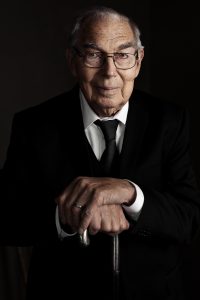
We’re looking for your CNF story for our next anthology
Into my father’s hands
 photo credits: Gerry Kingsley
photo credits: Gerry Kingsley2017 fall titles release party
Event Date: September 28th, 2017
Join as we celebrate the release of 5 books on Thursday September 28 2017 at Verdicchio Ristorante. 7 p.m. Free Admission. On this night we will be selling the new works of Rod Carley (North Bay), Roger Nash (Sudbury), Liisa Kovala (Sudbury) and Hap Wilson (Rosseau). We will also release a second edition of Suzanne Charron’s biography Wolf Man Joe LaFlamme: Tamer Untamed (originally published by Scrivener Press). All books are now available for preorder on our online store.How writing brought me out of darkness
Judges wrangling over who’ll win a Northern Lit Award this fall
- Chalk – Doug Diaczuk (Anvil Press)
- Wenjack – Joseph Boyden (Penguin Canada)
- Grace and the Secret Vault – Ruth Latta (Baico Publishing)
- Somewhere Picking Dandelions – Diana Douglas (Latitude 46)
- Rule of Seconds – Shawna Diane Partridge (Latitude 46)
- Killarney – Gustav A. Richar (Morsel Press)
- The Dependent – Danielle Daniel (Latitude 46)
- The Reason You Walk – Wab Kinew (Penguin Canada)
- Alone Against the North – Adam Shoalts (Penguin Canada)
Latitude 46 looking for short non-fiction stories for anthology
What Growing Up In Sulphur City Taught Me About Beauty
Atwood’s Challenge
So Ya Wanna Be A Writer, Huh? : Part 2
Many writers outline their stories and keep notes on characters, and that’s certainly the recommended method especially if you’re looking to complete long-form fiction such as novels.
Me, I never use ‘em. That’s probably a bad thing, but let me explain.
If you’re reading this right now, the chances are it’s because you’re interested in writing, or at the very least you’re a fan of good stories. For me, a good story is one where I can’t work out the ending. I don’t care if it’s a book or a film or a television show, I’m always trying to work out how it all ends up. If I can figure out the end, I call it out and quickly lose interest. My wife hates that, especially when I’m right.
What can I say, I can’t help myself.
That’s also how I feel about story outlines. If I know how my story will end, chances are other avid readers will be able to figure it out too. The knowledge that other folks read my work and enjoy it is a huge honour for me. The last thing I wanna do is insult their intelligence by giving them a predictable outcome. Sometimes it’s different, though. Sometimes I’ll get an idea for a story ending, and then I have to work out how to get there. Simply put, I don’t like having all the answers. What I do is start writing with a general idea, and hope for my mental autopilot to kick in.
Writers know what I’m talking about when I say autopilot. It’s a point you reach when creating fiction where you forget the conscious act of writing. The words are coming and the events in your story are unfolding, but it’s almost like you’re not in control anymore. It’s like the tale is revealing itself to you, like you’re a conduit.
It might sound like bullshit, and it doesn’t always happen when I sit down to write, but that’s what I aim for and it’s the best way I can describe it.
For those of you who are considering writing, my advice is to just do it. What are you waiting for? Hopefully you’ll discover your own autopilot or zone or whatever you want to call it, because that’s when you’ll be doing your best work.
Trust me.
– Robert Dominelli